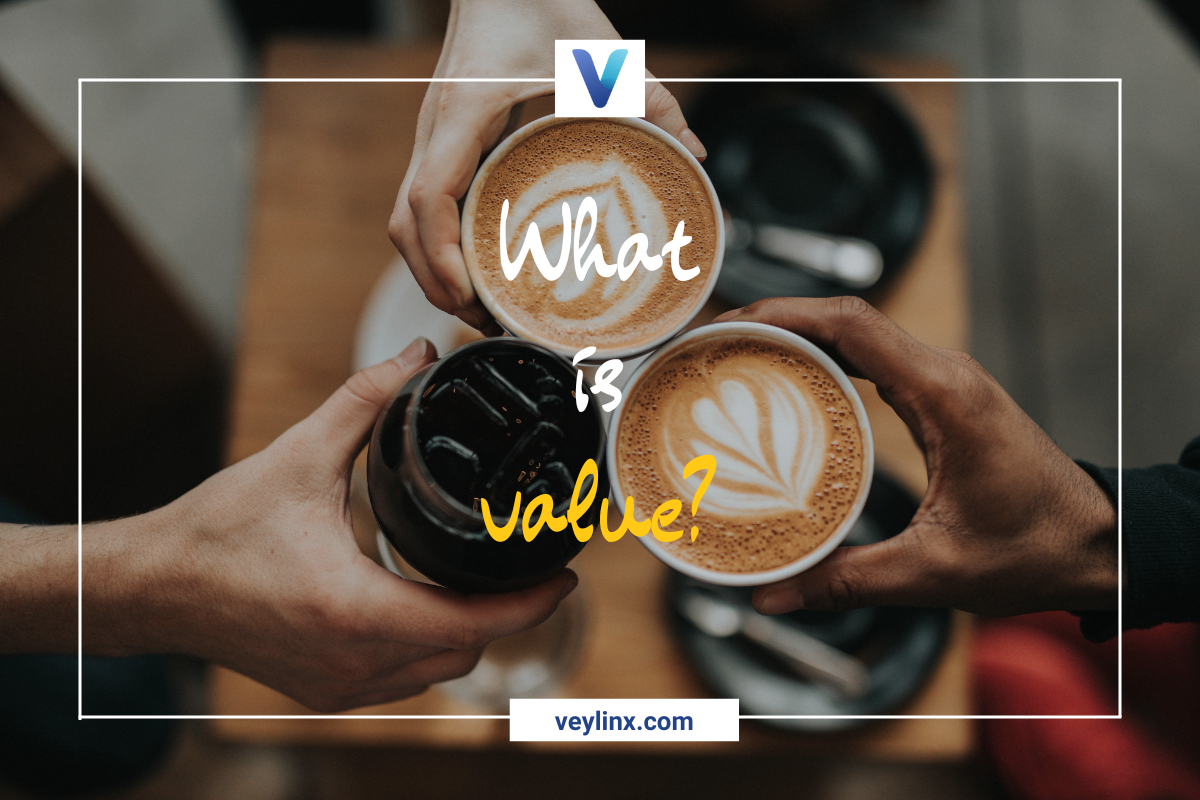What is Value?

The most fundamental concept in the social sciences is value. Value determines what we do. Value is that ‘thing’ that needs to be created, preserved, maximized, communicated, transferred, and shared. Value is ever-present and ever-changing. The pervasiveness of value can easily lead to the conclusion that our lives revolve around value.
But what is value exactly?
Value is often described using synonyms such as importance, benefit, quality, usefulness, or appreciation. This isn’t very helpful because these notions are as vague as the common understanding of value. Some would argue that such a grand concept as value cannot be defined. Accordingly, value is supposed to be something that can only be recognized.
Fortunately, it turns out that there’s something special about value. A very precise and useful definition of value exists that is barely known:
Value: the maximum amount that you’re prepared to give up
This definition has four interesting properties, and the following combination of properties provides the foundation to understand, measure, and analyze value.
-
Value is quantifiable (“the maximum amount”)
-
Value is about potential (“maximum … prepared”)
-
Value is subjective (“you’re”)
-
Value is expressed in terms of sacrifice (“to give up”).
Value Example
How much would you be prepared to walk to get freshly baked bread from a friend? Whatever the distance, that is your valuation of getting that bread. Some might go very far to get that bread. Maybe because your friend’s bread is known to be really good, you promised someone to get it, or there is no more bread at home. Whatever the reasons, your willingness to walk a distance of x to get it reflects the bread’s value to you. This is quantifiable; it’s about what you’re potentially willing to do, and it is expressed in walking distance, which requires effort.
The more valuable the bread becomes to you, the greater the distance you’re prepared to walk. Of course, not everyone is willing to walk the same distance. This shows that there’s no such thing as objective or intrinsic value. Value cannot be separated from people; people determine value — without people, there’s no value.
I didn’t need to use money to express value in the bread example. You can get something edible (the object of value); to get it, you must walk (the sacrifice). In fact, most decisions in life actually don’t involve any money. How much time are you willing to spend on reading that article? Or how much effort are you willing to exert to fix that nasty hole in the wall? Or how much noise are you willing to endure to stay in a bar? These are all ways to express value.
The easiest way to express value is in terms of money. Specifically, your monetary valuation of anything is simply the maximum amount that you’re willing to pay for it. Knowing people’s willingness to pay is powerful because it lets you predict what people will purchase.
The price of a product shouldn’t be confused with one’s maximum willingness to pay. The price of a product doesn’t necessarily reflect its value. The moment of purchase does, however, reveal a bit of information about one’s valuation. If you order a cup of espresso for $3, that decision implies that your valuation of a cup of espresso at that moment is at least $3. Your valuation might be much higher than $3, which can be considered a great deal. Or your valuation is only a little bit higher than $3, which means that if the cup was a little bit more expensive, you wouldn’t have bought it. So, knowing how much people spent can only reveal what they were at least willing to pay, not their actual valuation.
Having a precise understanding of what value is isn’t merely a philosophical exercise. It provides a logical framework to understand what makes people tick. Knowing what people value most provides us with the information to create as much value as possible. The more value we create, the more value we can capture in return, tangible or intangible. To be aware of what value is is in and of itself valuable.
Tags:
August 4, 2016


Comments